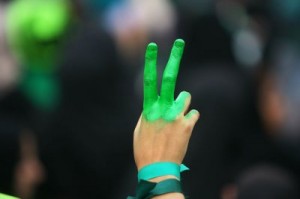War on Terror Flashback: Bush's Lawyer Yoo "Civilians Can Be Massacred"
 Sunday, February 21, 2010 at 0:01
Sunday, February 21, 2010 at 0:01  From Michael Isikoff and Mark Hosenball at Newsweek:
From Michael Isikoff and Mark Hosenball at Newsweek:The chief author of the Bush administration's "torture memo" told Justice Department investigators that the president's war-making authority was so broad that he had the constitutional power to order a village to be "massacred," according to a report by released Friday night by the Office of Professional Responsibility.
The views of former Justice lawyer John Yoo were deemed to be so extreme and out of step with legal precedents that they prompted the Justice Department's internal watchdog office to conclude last year that he committed "intentional professional misconduct" when he advised the CIA it could proceed with waterboarding and other aggressive interrogation techniques against Al Qaeda suspects.
The report by OPR concludes that Yoo, now a Berkeley law professor, and his boss at the time, Jay Bybee, now a federal judge, should be referred to their state bar associations for possible disciplinary proceedings. But, as first reported by NEWSWEEK, another senior department lawyer, David Margolis, reviewed the report and last month overruled its findings on the grounds that there was no clear and "unambiguous" standard by which OPR was judging the lawyers. Instead, Margolis, who was the final decision-maker in the inquiry, found that they were guilty of only "poor judgment."
The report, more than four years in the making, is filled with new details into how a small group of lawyers at the Justice Department, the CIA, and the White House crafted the legal arguments that gave the green light to some of the most controversial tactics in the Bush administration's war on terror. They also describe how Bush administration officials were so worried about the prospect that CIA officers might be criminally prosecuted for torture that one senior official—Attorney General John Ashcroft—even suggested that President Bush issue "advance pardons" for those engaging in waterboarding, a proposal that he was quickly told was not possible.
At the core of the legal arguments were the views of Yoo, strongly backed by David Addington, Vice President Dick Cheney's legal counsel, that the president's wartime powers were essentially unlimited and included the authority to override laws passed by Congress, such as a statute banning the use of torture. Pressed on his views in an interview with OPR investigators, Yoo was asked:
"What about ordering a village of resistants to be massacred? ... Is that a power that the president could legally—"
"Yeah," Yoo replied, according to a partial transcript included in the report. "Although, let me say this: So, certainly, that would fall within the commander-in-chief's power over tactical decisions."
"To order a village of civilians to be [exterminated]?" the OPR investigator asked again.
"Sure," said Yoo.
Yoo is depicted as the driving force behind an Aug. 1, 2002, Justice Department memo that narrowly defined torture and then added sections concluding that, in the end, it essentially didn't matter what the fine print of the congressionally passed law said: The president's authority superseded the law and CIA officers who might later be accused of torture could also argue that were acting in "self defense" in order to save American lives.
The original torture memo was prompted by concerns by John Rizzo, the CIA's general counsel, that the agency's officers might be criminally prosecuted if they proceeded with waterboarding and other rough tactics in their interrogation of Abu Zubaydah, an allegedly high-level Al Qaeda-linked operative who had been captured in Pakistan and in the spring of 2002 was transferred to a CIA "black site" prison in Thailand. Rizzo wanted the Justice Department to provide a blanket letter declining criminal prosecution, essentially providing immunity for any action engaged in by CIA officers, a request that Michael Chertoff, then chief of the Justice Department's criminal division, refused to provide. It was at that point that Yoo began crafting his opinion, the contents of which he actively reviewed with senior officials at the White House. "Let's plan on going over [to the White House] at 3:30 to see some other folks about the bad things opinion," he wrote in a July 12, 2002, e-mail quoted in the OPR report.
The report describes two meetings at the White House with then-chief counsel Alberto Gonzales and "possibly Addington." (Addington refused to talk to the OPR investigators but testified before Congress that he did in fact have at least one meeting with Yoo in the summer of 2002 to discuss the contents of the torture opinion.) After the second meeting, on July 16, 2002, Yoo began writing new sections of his memo that included his controversial views on the president's powers as commander in chief. When one of his associates, Patrick Philbin, questioned the inclusion of that section and suggested it be removed, Yoo replied, "They want it in there," according to an account given by Philbin to OPR investigators. Philbin said he didn't know who the "they" was but assumed it was whoever it was that requested the opinion (technically, that was the CIA, although, as the report makes clear, the White House was also pressing for it).
Yoo provided extensive comments to OPR defending his views of the president's war-making authority and disputing OPR's take that he slanted them to accommodate the White House. He did not immediately respond to NEWSWEEK'S request for comment Friday night.
 Abu Zubaydah,
Abu Zubaydah,  Albert Gonzales,
Albert Gonzales,  Bush Administration,
Bush Administration,  Central Intelligence Agency,
Central Intelligence Agency,  David Addington,
David Addington,  David Margolis,
David Margolis,  Dick Cheney,
Dick Cheney,  Jay Bybee,
Jay Bybee,  John Ashcroft,
John Ashcroft,  John Rizzo,
John Rizzo,  John Yoo,
John Yoo,  Justice Department,
Justice Department,  Mark Hosenball,
Mark Hosenball,  Michael Chertoff,
Michael Chertoff,  Michael Isikoff,
Michael Isikoff,  Newsweek,
Newsweek,  Office of Professional Responsibility,
Office of Professional Responsibility,  Patrick Philbin,
Patrick Philbin,  al-Qaeda in
al-Qaeda in  War On Terror
War On Terror 



